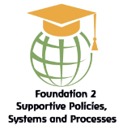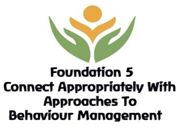- Home
- Key Information
- Attendance
Attendance
Working Together to Improve Student Attendance
Going to school regularly is important for your child’s future. Parents are responsible for making sure their children receive full-time education. Talking to your child and their teachers could help solve any problems if your child does not want to go to school.
Regular School Attendance
Good attendance shows secondary schools and future potential employers that your child is reliable.
Pilton school records details of all children’s attendance and absence at school. We do so at the beginning of morning and afternoon sessions. If your child is absent, you must tell the school why immediately by calling our Absence Line on 01271 349010.
The school will record the absence and the Local Authority will receive this information for each child. The Department of Education also receives annual attendance data for the school.
Your Responsibilities as a Parent
By law, all children of compulsory school age must receive a suitable full-time education. For most parents, this means registering their child at a school – though some choose to make other arrangements to provide a suitable, full-time education.
Once your child is registered at Pilton School, the parent is legally responsible for making sure they attend on a regular basis. If your child does not attend school on a regular basis, you could get fined or be prosecuted in court.
How to Prevent Your Child from Missing School
You can help prevent your child missing school by:
- making sure they understand the importance of good attendance and punctuality
- taking an interest in their education – ask about school work and encourage them to get involved in school activities
- discussing any problems they may have at school and letting their tutor, Head of Year know of any initial concerns. Contact Mr Lark, Deputy Headteacher (Attendance) tlark@pilton.college or Mr Hill, Headteacher ghill@pilton.college if you believe the concern to be more serious
- not letting them take time off school for minor ailments – particularly those which would not prevent you from going to work
To avoid disrupting your child’s education, you should arrange appointments and outings:
- after school hours
- at weekends
- during school holidays
You should not expect Pilton School to agree to your child going on holiday during term time.
Children have 170 days away from school each year. This time should be used for holidays, time with friends and family and appointments. School is too important to your life chances to miss.
Support on School Attendance
A child’s school attendance can be affected if there are problems with:
- bullying
- housing or care arrangements
- transport to and from school
- work and money
If your child starts missing school, you might not know there is a problem. When you find out, ask your child and then approach their tutor or Head of Year or the school attendance team.
Pilton’s Strategic Approach to Supporting and Improving School Attendance
Pilton school adopts the five Foundations of Effective Attendance Practice framework, modelled on the work of Professor Katherine Weare. The emphasis is on developing a school culture and climate which builds a sense of connectedness and belonging to ensure all children can attend school and thrive. This approach ensures that we prioritise building solid working relationships with children, parents and carers prior to any escalation. This staged approach also ensures that we identify early triggers that can lead to poor attendance issues such as mental health issues, lack of trust, communication and relationship breakdowns and the possible lack of networking opportunities both internal (in school) and external (external agencies).
The Foundations framework has most recently been reviewed by the Department for Education and received an excellent report following the four-day review.
“The Foundations approach is an excellent example of best practice; there are very clear and detailed systems and procedures in place to manage absence and attendance consistently”.
(Michelle O’Dell DFE Attendance Advisor March 2022)
Aims of the strategy
- Increase school Attendance and reduce Persistent Absence to meet set targets.
- Ensure Attendance is well managed within the school, with the appropriate level of resources allocated.
- Enable the school to make informed use of Attendance data to target interventions appropriately, focusing on the key demographic groups highlighted in the 2022 DFE paper.
Objectives
- Create an ethos within the school in which good attendance is recognised as the norm and every child/young person aims for excellent attendance.
- Make attendance and punctuality a priority.
- Set focused targets to improve individual attendance and whole school attendance levels.
- Embed the 5 Foundations of Effective Attendance Practice framework which defines agreed roles and responsibilities and promotes consistency in carrying out designated tasks with respect to promoting attendance and punctuality.
- Record and monitor attendance and absenteeism and apply appropriate strategies to minimise absenteeism.
- Develop a systematic approach to gathering and analysing relevant attendance data.
- Provide support, advice and guidance to parents, children and young people and develop mutual cooperation between home and the school in encouraging good attendance and in addressing identified attendance issues.
- Demonstrate through the use of rewards that the school recognises good attendance and punctuality are achievements in themselves.

Pilton school follows the five Foundations of Effective Attendance Practice framework. The approach is evidence-informed and completely child-centred. Each Foundation is supported by 5 Key Performance Indicators, these are used to ensure the school can embed the Foundations framework and understand the strategic direction regarding attendance improvement.
The framework allows the school to understand the whole school approach to supporting and improving attendance. We create welcoming environments to allow all children to gain a sense of belonging and ultimately achieve academically through regular school attendance.
The school policy is translated into practice through the processes and systems we follow. The escalated approach supports children at each stage and parents who do not engage with support understand why, at times, we must follow this process.
All staff receive attendance training to support the whole school approach, they understand their role in improving attendance. Certain staff are identified to engage in specialist training to continue to support families and children who work with external partners.
We use data information to support children. This allows us to understand the groups and individuals who require specific programmes of intervention. Reviewing each programme allows us to understand the effectiveness of support and change what is not working.
Finally, we train and support all staff to understand the root cause of concerns. Staff use the wider curriculum to allow all children to feel valued and accept themselves. We celebrate attendance success and ensure children returning from long absence receive a planned transition.

The school has a fully embedded ethos in which excellent school attendance is expected, developed and nurtured. The escalated approach to supporting attendance is built on foundations of belonging and connectedness.

The approach to improving attendance is built on clear policies, systems and processes. This ensures continuous and sustainable improvement drives attendance practice. The attendance policy is understood by all stakeholders and allows the school to set, and maintain, high expectations to improve the culture of attendance.

The school prioritises developing a team of attendance experts, with a shared vision and core purpose. The Attendance Leader delivers bespoke training to support all staff to fully understand their role in improving attendance. External partnerships support attendance improvements through a multi-disciplinary approach for identified children and families.
 Data information and analysis direct resources proactively towards key demographic groups and identified individuals. The expert use of data analysis informs decision making at all levels. The attendance process ensures the Attendance Leader understands the reason for attendance concerns, these barriers can then be successfully supported and removed.
Data information and analysis direct resources proactively towards key demographic groups and identified individuals. The expert use of data analysis informs decision making at all levels. The attendance process ensures the Attendance Leader understands the reason for attendance concerns, these barriers can then be successfully supported and removed.

Connecting and belonging drives the school approach to supporting attendance. All staff are supported to understand 'deeper roots' regarding poor attendance concerns. The school has developed, and embedded, an effective rewards system to further drive attendance improvements and celebrate success.

